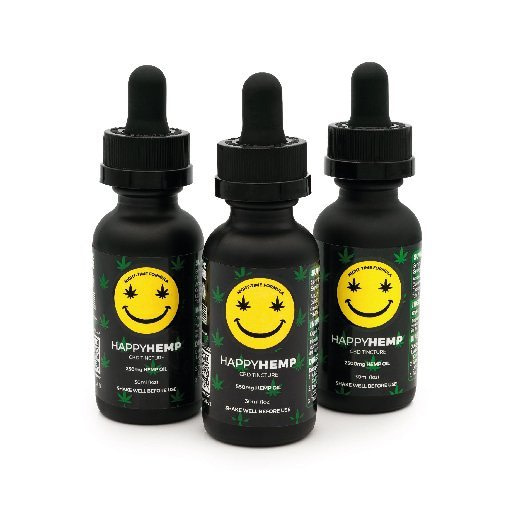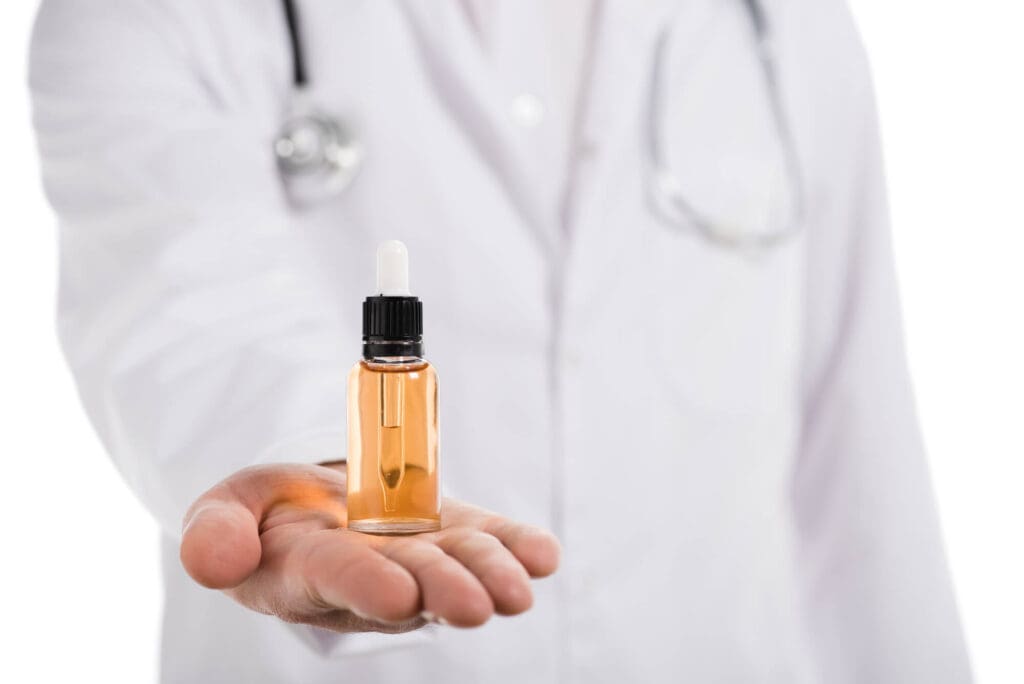With so many questions circling CBD and cannabis, it’s fair to ask how does CBD affect your body. Ever wonder how long CBD oil stays in your system, if it’s safe to take, or how much to dose? Here’s what you need to know!
The Science Behind CBD
Before diving into CBD and our systems, let’s tackle the intricacies of the compound. Firstly, CBD and cannabis are not the same. CBD comes from hemp plants, while cannabis from a marijuana plant. Only a small, subtle difference is why CBD isn’t psychoactive, and weed is.
While CBD (cannabidiol) is a large component of cannabis, lending it its suggested healing qualities, THC is negligible in hemp plants. Legal products found online and in stores contain .03% or less. THC in marijuana products is the chemical responsible for mind-altering effects. Since it’s of low quantities in CBD gummies, these are a safe and fun way to consume.
Despite the glaring difference in psychoactive side effects, hemp and cannabis are cousins. They both have been used since the dawn of humans and slowly integrating into modern medicine. Consider trying CBD as an alternative to nasty pharmaceuticals.

How Long CBD Oil Will Be Detectable in Your System
THC and CBD will be noticeable in your body, contingent upon several factors. Every individual body handles chemicals and responses differently, explaining why some medicine is effective for some and others useless.
Factors that decide CBD’s duration in your system:
- Metabolism
- Frequency
- Dosages
Not many are aware of just how closely tied metabolisms and CBD are. Research shows that bodies filter and dispel CBD after its fully metabolized by the liver. So, depending on how efficient your liver and digestive processes are, even a small dose of CBD can linger for a couple of days.
As with many chemicals, the longer you use it, the longer it remains in you. Human bodies are composed of endocannabinoid receptors that absorb CBD as it enters the body. These are all over our bodies.
There is no limit to how much CBD human bodies can tolerate, but bodies store the excess intake for large doses. Bodies store CBD and THC in fat cells. As of now, there is no definitive limit that determines when fat-storing begins.
Time, research, and studies suggest that CBD can:
- Changes the way fat is broken down
- Improves fat burning by increasing mitochondria levels
- Represses cells that build fat
While the science behind this seeming breakthrough is far from conclusive, perhaps CBD may be used as a potent fat burner in the years ahead. For now, as with all things, use with care and moderation.
One thing that doesn’t affect how long CBD will show on a test is how you consume the substance. It doesn’t matter if you vape, mix it in a drink, or pop an edible; your frequency and metabolic efficiency will determine its lasting stay.
While the research supports CBD could speed up metabolisms, there is no way of telling if these effects will happen to everyone.
Is CBD Safe?
Generally speaking, CBD is much safer than most traditional forms of medicine. And also non-addictive. There is a reason why you never hear about a CBD overdose fatality. They don’t exist. While there are no life-threatening dangers, there are some things to consider.
Overall, most people that use CBD regularly have never had any adverse symptoms. But, potential side effects of taking cannabidiol are:
- Drowsiness
- Dry mouth
- May interact with other medicines
- Nausea
Before taking anything new, it’s always best to consult with your family doctor and get their opinion.
Want to Focus? Try CBD!
Concentration and laser focus comes from a chemical in our brains known as dopamine. It’s responsible for driving us to meet a milestone to achieve an award or a sense of accomplishment. It’s a feel-good chemical. Dopamine levels are normal and steady in a fully functioning body, allowing for natural emotional responses towards goals.
CBD has its role to play in dopamine, seemingly taking after its cousin Mary Jane. Research shows that THC in your system binds with dopamine receptors in your brain, affecting how they operate.
Users of varying levels of cannabis show higher levels of dopamine, the reward stimulating compound. These scientists took their findings and are showing early efforts are showing similar results.
In the same way that CBD binds endocannabinoid receptors, it locks onto dopamine receptors in the brain. Much like THC, this spurs the increased dopamine production in some people, allowing you to focus.
You may be wondering how dopamine relates to concentration if it’s a feel-good chemical. If you think about it for a minute, it makes sense. If it drives you to chase a goal for a reward, that would naturally make you more inclined to achieve it quicker.
Can CBD Fight Addictions?
Once scientists noticed an increase in dopamine levels, they wondered if CBD could distort the cravings for addictive substances.
The working theory is that when dopamine releases as you take a drug, it’s feel good sensation encourages addiction development. Therefore, since CBD naturally stimulates dopamine production, it’s none addiction while dampening the cravings.
While not conclusive, we cannot advise using CBD to quit a nicotine or alcohol addiction. Many more rounds of tests will need conducting before cannabidiol is commonly known as an addiction buster.
CBD and Memory Retention
Another budding area of study in the CBD world is its ability to help memory loss. CBD seems to have the ability to protect and promote the growth of brain cells which enables efficient memory storage. Furthermore, this may also lessen the chance of Alzheimer’s and dementia from developing.

Many Things Could Determine How Long Does CBD Oil Stay in Your System
While CBD may only last in your system for a short amount of time, it affects human biology profoundly. There are so many potential benefits of CBD. The cool thing is, the more people using the products, the more benefits we’re bound to unearth and improve! The futures of medicine and cannabidiol are firmly intertwined. Contact us with any CBD questions you have.







